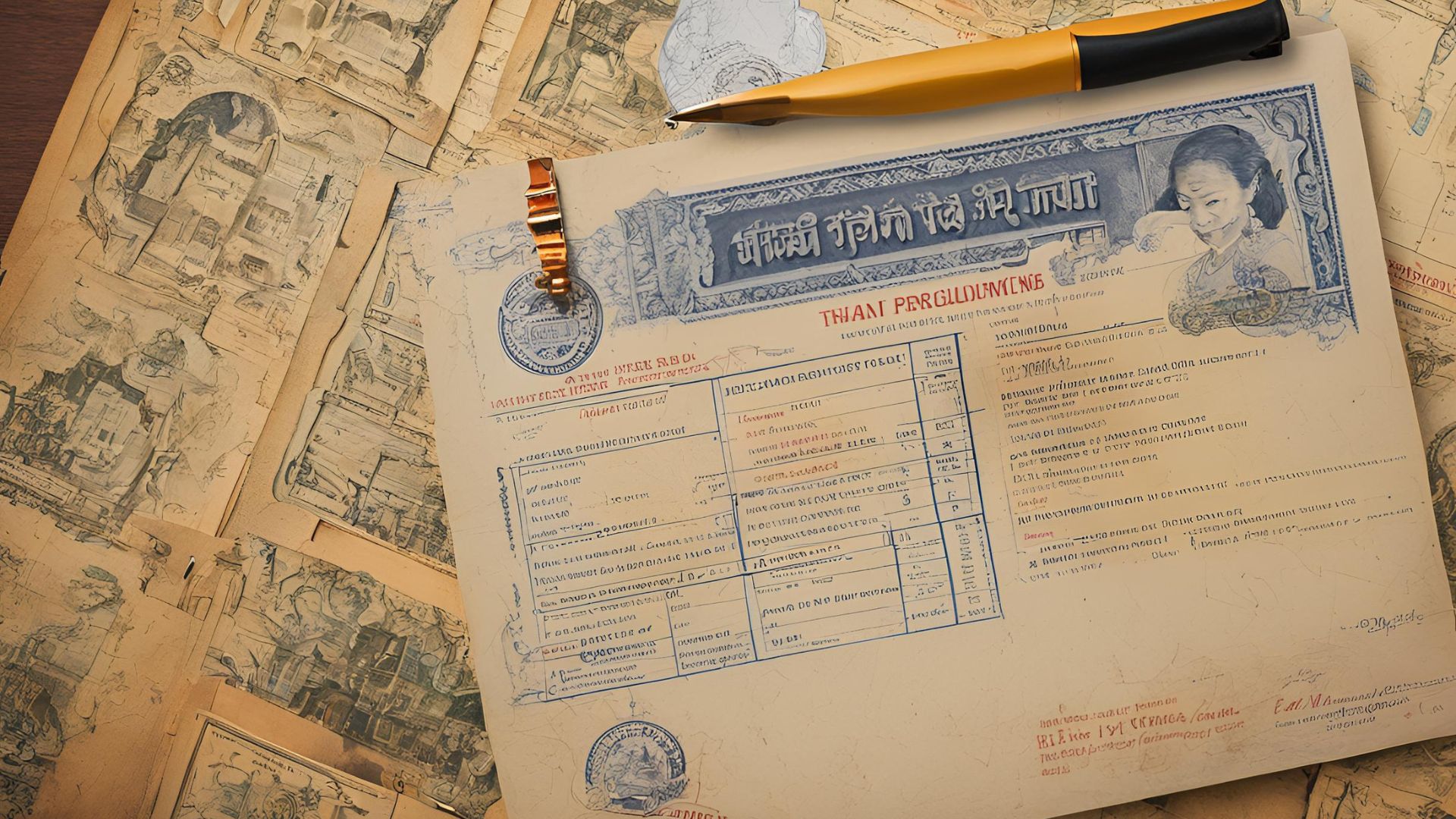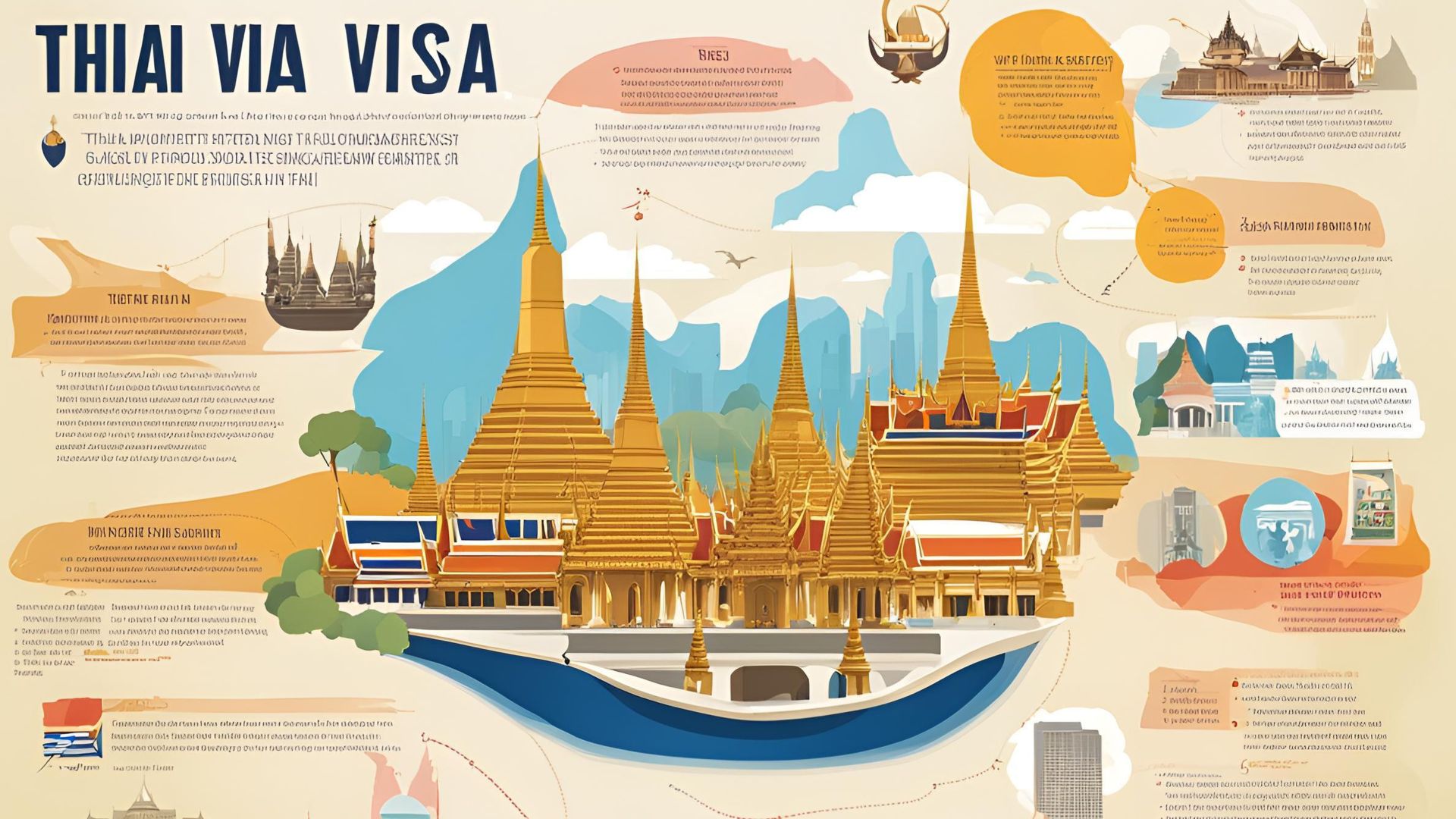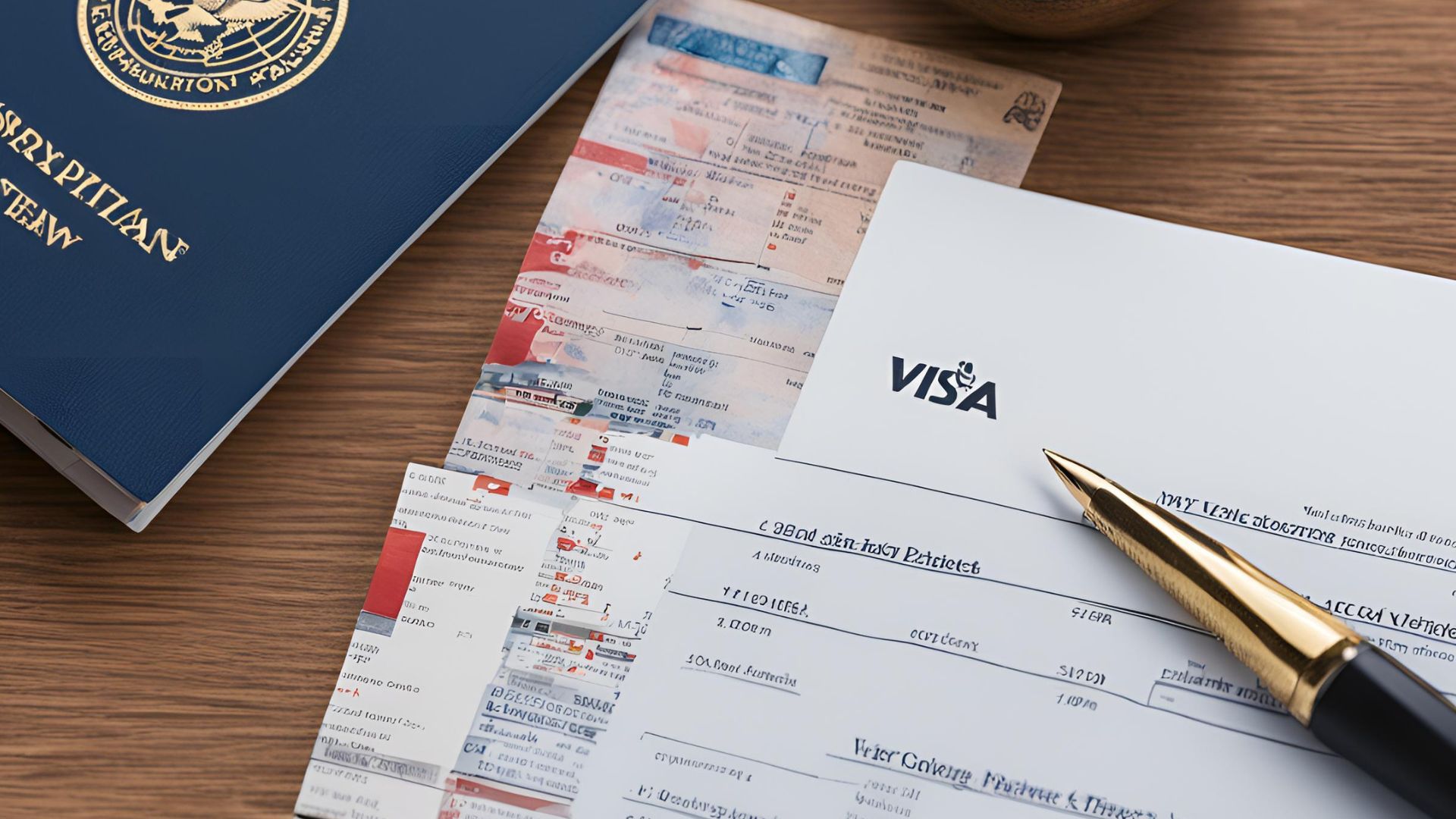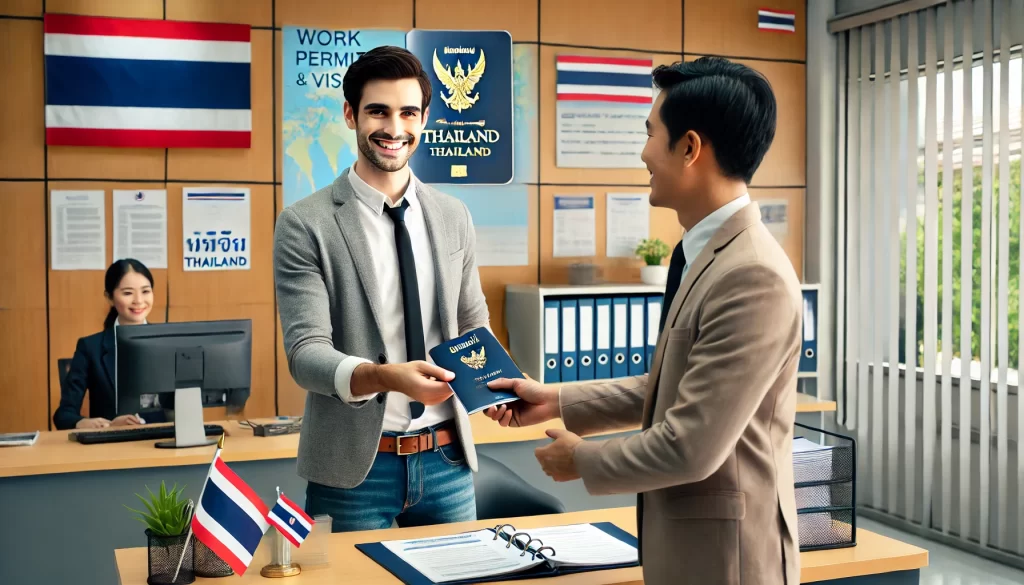Are you dreaming of tropical beaches, vibrant street markets, and a rich cultural tapestry? Thailand beckons! 🌴🇹🇭 But before you pack your bags and book that one-way ticket, there’s a crucial step you can’t afford to overlook: securing your work permit and visa.
Navigating the maze of Thai bureaucracy can feel overwhelming, leaving many aspiring expats frustrated and confused. 😓 From deciphering complex legal requirements to gathering a mountain of paperwork, the process can quickly become a headache. But fear not! We’re here to guide you through the intricacies of obtaining your Thai work permit and visa, ensuring a smooth transition to your new life in the Land of Smiles.
In this comprehensive guide, we’ll walk you through everything you need to know, from understanding the basic requirements to mastering the application process. We’ll explore the ins and outs of Thai work permit regulations, demystify the visa application procedure, and share insider tips to help you avoid common pitfalls. So, let’s dive in and unlock the secrets to securing your future in Thailand! 🗝️🌟
Understanding Thai Work Permit Requirements

A. Eligibility criteria for expats
To secure a work permit in Thailand as an expat, you must meet specific eligibility criteria:
- Valid non-immigrant visa
- Offer of employment from a Thai company
- Minimum educational qualifications (usually a bachelor’s degree)
- Relevant work experience (typically 2-5 years)
- Minimum salary requirements (varies by nationality and sector)
B. Types of work permits available
Thailand offers several types of work permits to cater to different expat needs:
| Work Permit Type | Duration | Key Features |
|---|---|---|
| General Work Permit | 1-2 years | For regular employment |
| BOI Work Permit | Up to 4 years | For positions in BOI-promoted companies |
| Digital Nomad Visa | 10 years | For remote workers and digital professionals |
| Smart Visa | Up to 4 years | For highly skilled professionals in targeted industries |
C. Required documents and paperwork
Gathering the necessary documents is crucial for a successful work permit application:
- Passport with valid non-immigrant visa
- Passport-sized photographs
- Educational certificates and transcripts
- Employment contract or offer letter
- Company registration documents
- Tax ID card
- Health certificate
- Criminal background check
D. Common challenges and how to overcome them
Expats often face several hurdles when applying for a Thai work permit:
- Language barrier: Hire a translator or use official translation services
- Lengthy processing times: Start the application process well in advance
- Changing regulations: Stay updated through official government websites
- Strict quota systems: Ensure your employer meets the Thai-to-foreign worker ratio
- Incomplete documentation: Double-check all required paperwork before submission
By understanding these requirements and potential challenges, you’ll be better prepared to navigate the Thai work permit process successfully. Next, we’ll explore the intricacies of the Thai visa process, which goes hand-in-hand with securing your work permit.
Navigating the Thai Visa Process

Different visa categories for working expats
When navigating the Thai visa process, it’s crucial to understand the various visa categories available for working expats. The most common types include:
- Non-Immigrant B Visa
- Non-Immigrant O Visa
- Smart Visa
Here’s a comparison of these visa categories:
| Visa Type | Purpose | Duration | Eligibility |
|---|---|---|---|
| Non-Immigrant B | Employment | 90 days (extendable) | Employees with job offers |
| Non-Immigrant O | Family, retirement | 90 days (extendable) | Retirees, spouses of Thai nationals |
| Smart Visa | High-skilled professionals | Up to 4 years | Experts in targeted industries |
Application procedures and timelines
The application process for Thai visas typically involves:
- Gathering required documents
- Submitting the application at a Thai embassy or consulate
- Waiting for approval (usually 3-5 business days)
- Collecting your visa
Visa extension options
Once in Thailand, you may need to extend your visa. Options include:
- 90-day extensions at immigration offices
- Annual extensions based on work permit status
- Re-entry permits for international travel
Dos and don’ts for maintaining visa status
To maintain your visa status:
- Do report your address every 90 days
- Do carry your passport and visa at all times
- Don’t overstay your visa
- Don’t engage in unauthorized work
Understanding these aspects of the Thai visa process is essential for a successful stay in the country. Next, we’ll delve into the step-by-step guide for securing your work permit, which goes hand-in-hand with your visa status.
Step-by-Step Guide to Securing Your Work Permit

A. Finding a sponsoring employer
Finding a sponsoring employer is crucial for securing a work permit in Thailand. Here’s what you need to know:
- Research companies in your field that hire expatriates
- Network with other expats and attend job fairs
- Utilize online job boards and recruitment agencies specializing in expat placements
| Pros of Finding a Sponsor | Cons of Finding a Sponsor |
|---|---|
| Legal work authorization | Limited job options |
| Access to benefits | Dependence on employer |
| Easier visa process | Potential for exploitation |
B. Preparing your application package
Once you’ve found a sponsor, gather these essential documents:
- Valid passport with at least 6 months validity
- Non-immigrant B visa
- Passport-sized photographs
- Educational certificates
- Proof of work experience
- Company registration documents
- Tax ID card
C. Submitting your application
Submit your application to the Department of Employment:
- Fill out the work permit application form (WP.1)
- Pay the application fee
- Provide all required documents
- Attend an interview if requested
D. Following up and addressing any issues
Stay proactive during the application process:
- Check your application status regularly
- Respond promptly to any requests for additional information
- Be prepared to provide clarification or extra documentation if needed
E. Receiving your work permit
Once approved, you’ll receive your work permit. Remember:
- Collect your work permit in person
- Sign the permit immediately
- Keep it with you at all times while working
- Note the expiration date and start renewal process well in advance
Now that you have your work permit, you’re ready to start your exciting career in Thailand legally and confidently.
Mastering the Visa Application Process

Choosing the right visa type
When applying for a visa in Thailand, selecting the appropriate type is crucial. The most common visa for expatriates seeking employment is the Non-Immigrant B Visa. However, there are other options depending on your specific circumstances:
| Visa Type | Purpose | Duration |
|---|---|---|
| Non-Immigrant B | Work or business | 90 days (extendable) |
| Non-Immigrant O | Retirement or family | 90 days (extendable) |
| Non-Immigrant ED | Education or internship | 90 days (extendable) |
| Smart Visa | Highly-skilled professionals | Up to 4 years |
Gathering necessary documents
To ensure a smooth application process, prepare the following documents:
- Valid passport (with at least 6 months validity)
- Completed visa application form
- Recent passport-sized photographs
- Proof of financial means
- Employment contract or letter of invitation
- Criminal background check
- Health certificate
Applying at Thai embassies or consulates
Once you’ve chosen the right visa and gathered your documents, submit your application at a Thai embassy or consulate in your home country. The process typically involves:
- Scheduling an appointment
- Submitting your documents
- Paying the visa fee
- Attending an interview (if required)
- Waiting for processing (usually 3-5 business days)
Entering Thailand and activating your visa
After receiving your visa, you can enter Thailand. Upon arrival:
- Present your passport and visa at immigration
- Obtain an entry stamp
- Report to the local immigration office within 90 days
Now that you understand the visa application process, let’s explore the legal considerations and compliance requirements you’ll need to be aware of as an expat working in Thailand.
Legal Considerations and Compliance

Understanding Thai labor laws
Thai labor laws are complex and essential for expats to understand. Key points include:
- Working hours: Maximum 48 hours per week
- Overtime: Must be voluntary and paid at 1.5-3 times regular rate
- Holidays: 13 public holidays annually, plus minimum 6 days of annual leave
- Severance pay: Based on length of employment
| Length of Employment | Severance Pay |
|---|---|
| 120 days – 1 year | 30 days’ wages |
| 1-3 years | 90 days’ wages |
| 3-6 years | 180 days’ wages |
| 6-10 years | 240 days’ wages |
| 10+ years | 300 days’ wages |
Tax obligations for expat workers
Expats must navigate Thailand’s tax system carefully:
- Personal income tax rates: Progressive, ranging from 0-35%
- Tax residency: Triggered after 180 days in Thailand within a calendar year
- Double taxation agreements: Thailand has treaties with many countries
Social security and healthcare requirements
Expats should be aware of:
- Social security contributions: Mandatory for most employees
- Healthcare: Many expats opt for private insurance in addition to social security
Reporting and renewal procedures
To maintain compliance:
- Report to immigration every 90 days
- Renew work permit annually
- Update visa status as needed
- Inform relevant authorities of any changes in employment or address
Now that we’ve covered the legal aspects, let’s move on to some practical tips for a smooth transition to working in Thailand.
Tips for a Smooth Transition

Working with reputable immigration lawyers
When navigating the complex process of obtaining a work permit and visa in Thailand, working with a reputable immigration lawyer can be invaluable. These professionals can:
- Provide expert guidance on legal requirements
- Help you avoid common pitfalls
- Expedite the application process
- Ensure all documentation is correctly prepared
| Benefits of Immigration Lawyers | Potential Drawbacks |
|---|---|
| Expert knowledge of Thai law | Additional cost |
| Time-saving | Dependency on third party |
| Reduced stress and uncertainty | Possible language barrier |
| Higher success rate | Limited availability |
Leveraging expat communities for advice
Connecting with established expat communities can offer practical insights and support:
- Join online forums and social media groups
- Attend local expat meetups and events
- Seek recommendations for reliable services
- Learn from others’ experiences and challenges
Planning your timeline effectively
Securing a work permit and visa requires careful planning:
- Start the process at least 3-4 months before your intended move
- Allow extra time for document gathering and translation
- Factor in processing times for different stages of the application
- Consider potential delays and have contingency plans
Preparing for potential cultural differences in the workplace
Adjusting to Thai work culture can be crucial for a smooth transition:
- Research Thai business etiquette and customs
- Learn basic Thai language phrases
- Understand the concept of “saving face” in professional interactions
- Be prepared for a more hierarchical workplace structure
By following these tips, you’ll be better equipped to handle the challenges of relocating to Thailand for work. Remember that patience and flexibility are key throughout this process.
Securing a work permit and visa in Thailand as an expat involves navigating a complex process, but with the right knowledge and preparation, it can be a smooth experience. From understanding the requirements and legal considerations to following a step-by-step approach for both work permit and visa applications, expats can successfully establish themselves in Thailand’s vibrant workforce.
Remember, compliance with Thai laws and regulations is crucial throughout your stay. By staying informed, seeking professional assistance when needed, and maintaining a proactive approach to your legal status, you can enjoy a rewarding expat experience in the Land of Smiles. Take the time to familiarize yourself with the process, gather all necessary documents, and embrace the opportunity to immerse yourself in Thailand’s rich culture and thriving job market.

